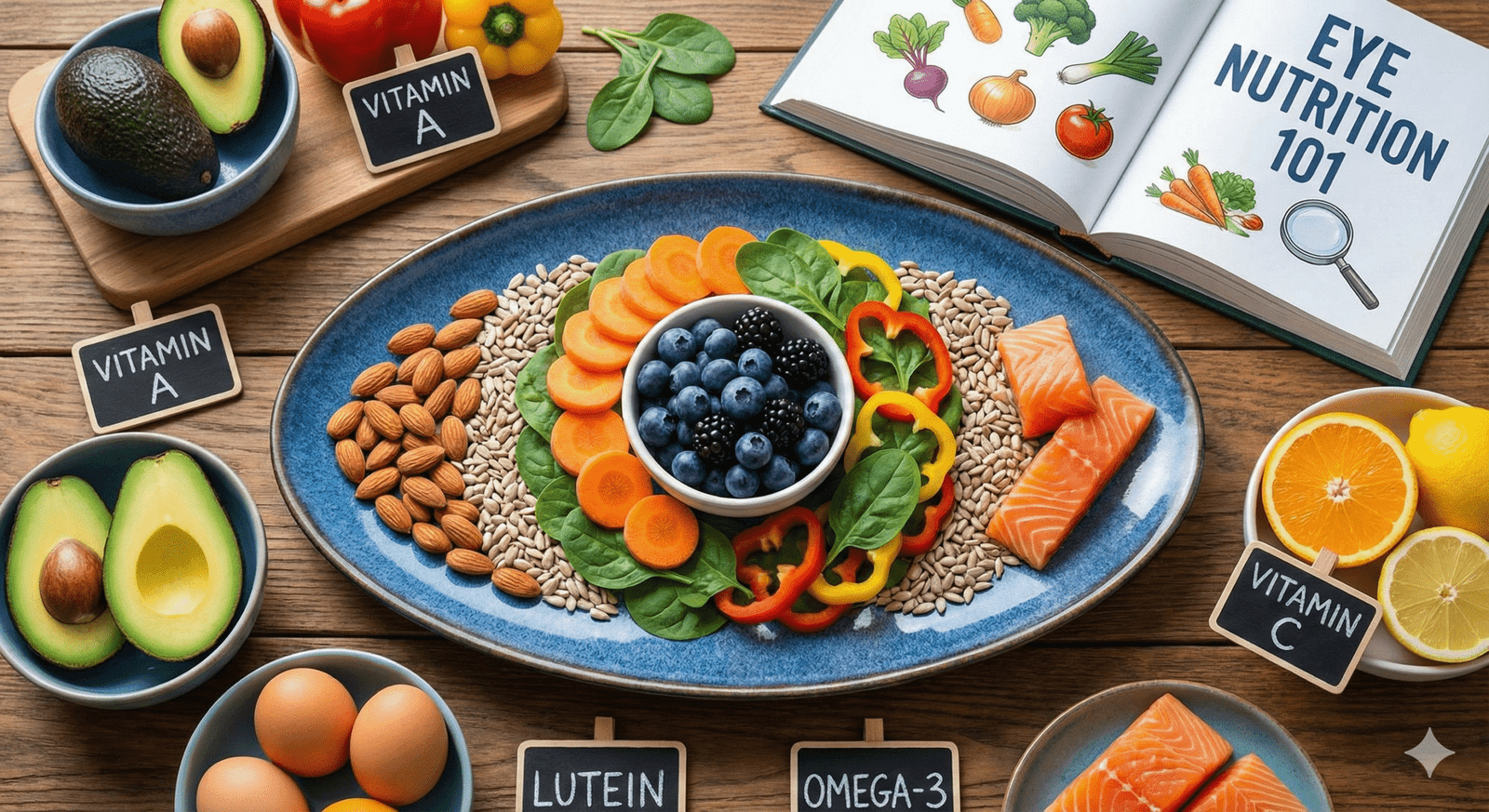Eye Nutrition 101: The Best Foods for Clearer Vision
We’ve all heard the saying, “You are what you eat.” When it comes to your eyes, this couldn’t be truer. The food choices you make every day play a direct role in how well you see and how your eyes age over time.
From long work hours in front of screens to increasing pollution and stress, your eyes face several daily challenges. But the good news is, the right foods for healthy eyes can help protect your vision naturally.
In this guide, the experts at Eye Cure Hospital explain how proper nutrition supports your eye health and which foods you should include in your daily eye care diet in India.
1. Why Eye Nutrition Matters
Your eyes, like every other organ, rely on essential vitamins and nutrients to function optimally. Deficiency in certain nutrients can lead to:
- Dryness or irritation
- Poor night vision
- Increased risk of cataracts or macular degeneration
- Fatigue or blurriness due to digital exposure
A well-balanced eye care diet provides your body with antioxidants and vitamins that protect your eyes from oxidative stress and age-related changes.
2. Vitamin A – The Vision Vitamin
When it comes to vitamin A and vision, the connection is crystal clear. Vitamin A is crucial for maintaining the surface tissues of the eyes and enabling the retina to process light properly. Deficiency in this vitamin can lead to night blindness, one of the earliest signs of poor eye nutrition.
Top foods rich in Vitamin A:
- Carrots
- Sweet potatoes
- Spinach
- Pumpkin
- Eggs
Including these foods in your eye care diet helps keep your eyes moisturized and your vision sharp, especially in low-light conditions.
3. Omega-3 Fatty Acids for Lubrication and Comfort
Do your eyes feel dry, itchy, or irritated after a long day? Omega-3 fatty acids can help. They reduce inflammation and improve tear quality, which keeps your eyes comfortable.
Best sources:
- Flaxseeds and chia seeds
- Walnuts
- Salmon, sardines, and mackerel
In India, vegetarian options like flaxseed oil or walnuts are excellent additions to your eye care diet.
4. Vitamin C – The Eye’s Defense Shield
Vitamin C is a powerful antioxidant that protects your eyes from free radical damage and supports collagen formation in the cornea. Regular intake of Vitamin C can slow the progression of age-related macular degeneration and cataracts.
Rich sources include:
- Oranges and lemons
- Amla (Indian gooseberry)
- Guava
- Strawberries
- Bell peppers
Adding these colorful fruits and vegetables to your plate helps build long-term eye strength and resilience.
5. Vitamin E – The Protector Against Oxidative Stress
Vitamin E works alongside Vitamin C to protect cells from oxidative stress, a common factor in aging and environmental exposure.
Top foods for healthy eyes with Vitamin E:
- Almonds
- Sunflower seeds
- Avocados
- Olive oil
Just a handful of almonds a day can go a long way in keeping your eyes healthy and hydrated.
6. Zinc – The Vision Booster
Zinc plays a vital role in transporting Vitamin A from the liver to the retina to produce melanin, a pigment that protects the eyes. Low zinc levels can lead to poor night vision and cloudy eyesight.
Zinc-rich foods include:
- Chickpeas
- Cashew
- Whole grains
- Eggs
- Meat and poultry
For vegetarians in India, legumes and seeds are great ways to add zinc naturally to your eye care diet.
7. Lutein & Zeaxanthin – The Natural Sunglasses for Your Eyes
These powerful antioxidants are found in the retina and act like internal sunglasses, filtering harmful blue light from screens and the sun. They reduce the risk of cataracts and age-related eye conditions.
Top sources:
- Kale and spinach
- Corn
- Green peas
- Broccoli
- Egg yolks
Try adding a mix of leafy greens to your meals daily for a natural, nutrient-packed eye boost.
8. Hydration – The Unsung Hero of Eye Health
While not a nutrient, water is essential for maintaining eye moisture and comfort. Dehydration can make your eyes feel tired and dry, especially in India’s warmer climates. Drink at least 2–3 liters of water a day to support tear production and overall eye comfort.
9. Simple Indian Meal Plan for Eye Health
Here’s how you can create an eye care diet in India with everyday foods:
Breakfast:
- Carrot and spinach smoothie
- Boiled eggs or paneer toast
- Handful of soaked almonds
Lunch:
- Brown rice with dal and sabzi (include greens like methi or palak)
- Curd with flaxseed powder
Snacks:
- Fruit bowl with orange, guava, or papaya
- Roasted chickpeas
Dinner:
- Grilled fish or tofu curry
- Steamed broccoli and corn salad
This balanced approach ensures your body and your eyes receive the right blend of nutrients throughout the day.
10. Supplements – When Diet Alone Isn’t Enough
While whole foods are the best source of eye nutrition, certain individuals may require supplements, especially older adults or those with existing eye conditions. However, supplementation should always be guided by a qualified ophthalmologist or dietitian.
At Eye Cure Hospital, specialists can evaluate your nutritional profile and recommend safe, effective supplements to enhance your vision health.
Eat Smart, See Better
Caring for your eyes begins in your kitchen. A nutrient-rich diet full of antioxidants, vitamins, and minerals can significantly improve your eye health, strengthen your vision, and protect against long-term damage.
From vitamin A for vision to zinc, omega-3s, and lutein, every nutrient plays a unique role in keeping your eyes clear and bright.
If you’re experiencing dryness, blurred vision, or any discomfort, it’s best to consult professionals who understand your needs. Visit Eye Cure Hospital, where expert ophthalmologists combine medical care with lifestyle and nutritional guidance to help you maintain lifelong healthy vision.
Because when you eat right, you see right.


